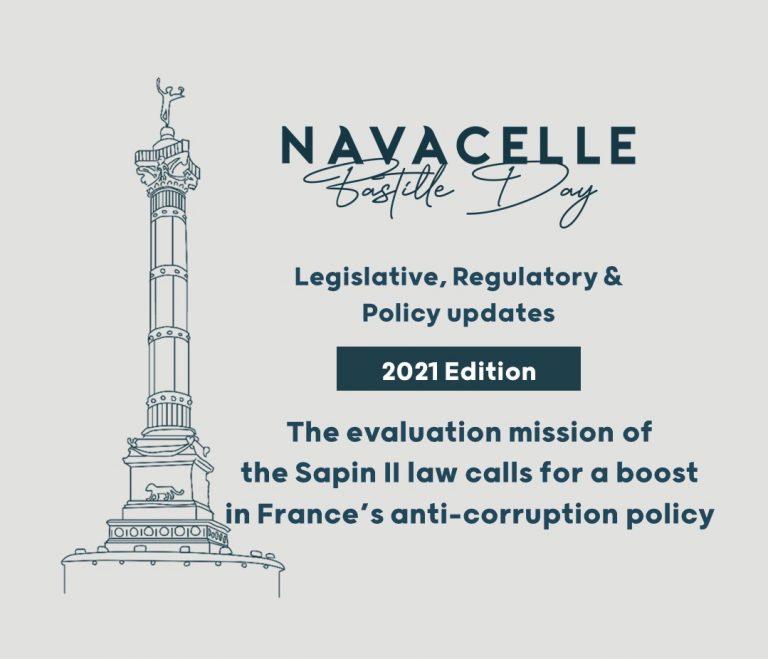This Bill, submitted on the 19 October 2021 by Deputy Raphaël Gauvain, offers a sequel to the Sapin II law and partly incorporates the recommendations made in the information report on the evaluation of the impact of the Sapin II law, known as the Gauvain-Marleix report of the 7 July 2021.
It notably includes substantial changes with respect to the persons subject to anti-corruption compliance obligations, new legislative rules regarding internal investigations and negotiated justice, as well as a change in the role of the French Anti-Corruption Agency (“AFA”) with respect to public persons.
Thus, the deletion of the requirement that the parent company’s registered office be located in France, as provided for in Article 17 of the Sapin II Law makes it possible to extend compliance obligations of this Article to small subsidiaries of large foreign groups which exceed the thresholds of 500 employees and a turnover of more than 100 million euros (Art. 1, paras. 15 to 16)
The possibility of an internal investigation carried out in parallel to an indictment by the prosecution authorities has been included in the Code of Criminal Procedure. During these investigations, the rights of natural persons are strengthened (Article 7). This addresses a frequent criticism raised against this procedure, including in the Gauvain-Marleix report. Natural persons will therefore be granted greater rights during hearings, of which they must be informed. They will also have access to the file if they are likely to be implicated.
Regarding negotiated justice, the scope of the Public Interest Judicial Agreement (“CJIP”) is extended to favoritism (art. 6 para.3) and the maximum duration of monitoring by the French Anti-Corruption Agency (“AFA”) is raised to 5 years (art. 6 para. 4). An intermediary phase is introduced during the preliminary investigation in the event that a CJIP is envisaged by the Prosecutor. Such phase allows the legal entity (the company) to have access to the file (Art. 6 paras. 5 to 8). An ad hoc representative may be appointed to negotiate on behalf of the legal person to prevent management by persons involved in the facts under investigation (art. 6 paras. 9 to 12).
The safeguarding of documents transmitted during the negotiation is also strengthened to ensure that they are not disclosed in the event that the legal person decides to waive the CJIP or refuses the CJIP proposal made by the Prosecutor (art. 6, paras. 13 to 15).
The criminal liability of legal entities is also extended to cover simple failures of supervision resulting in the commission of an offence (art. 8).
It is thus suggested that the control operations of the French Anti-Corruption Agency (“AFA”) with respect to public entities be reinforced and transferred to the High Authority for the Transparency of Public Life (“HATVP”). Similarly, the monitoring of lobbying activities is strengthened.
It should be noted that some important proposals of the Gauvain-Marleix report have not been included. Indeed, the text is silent on the possibility of a negotiated justice for individuals, on the problem of whistleblowers, and on the much debated “blocking statute” of 1968.


